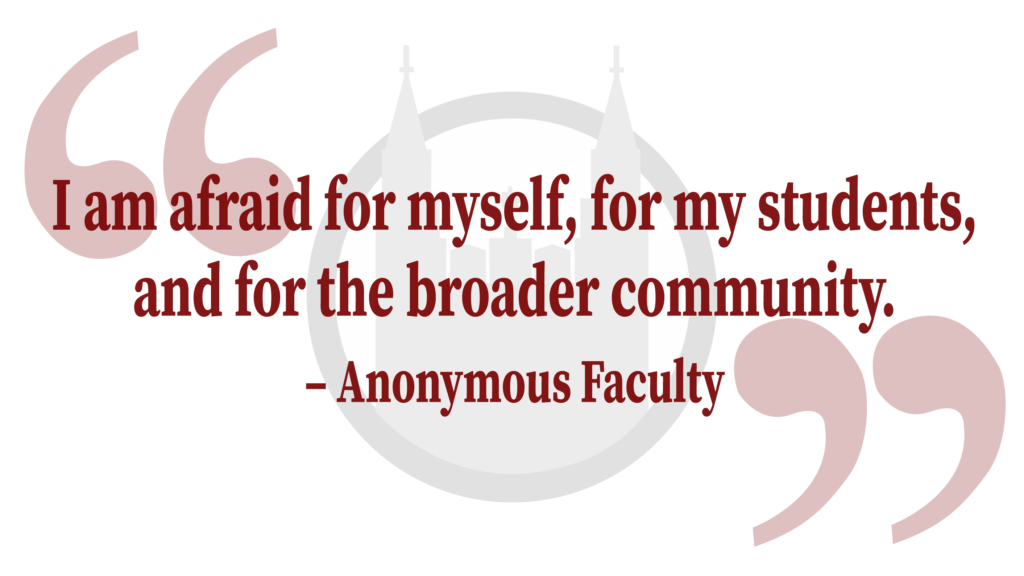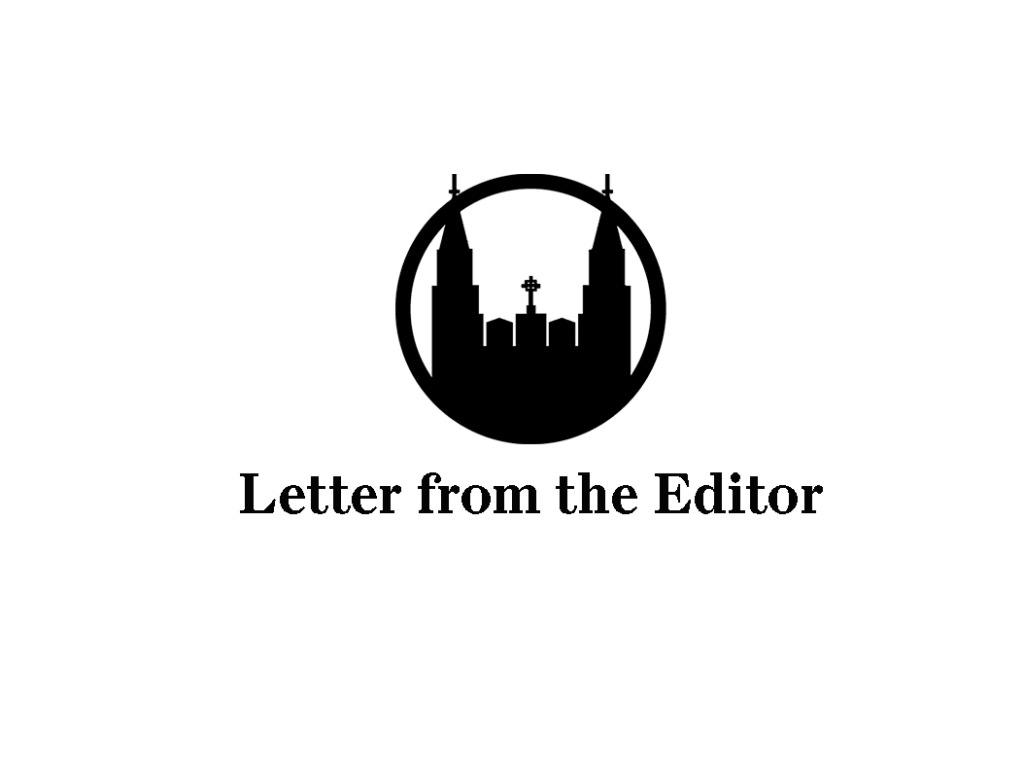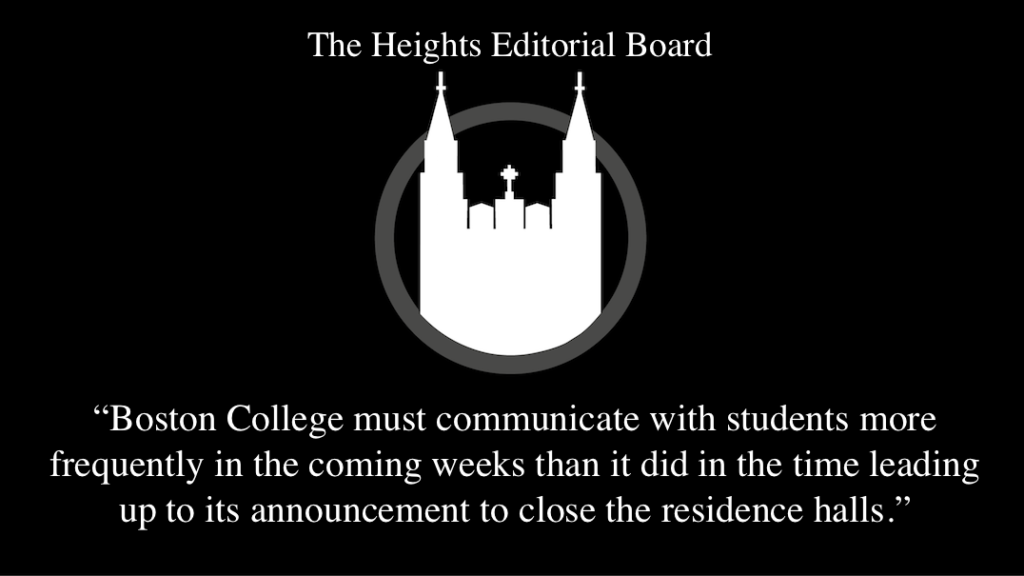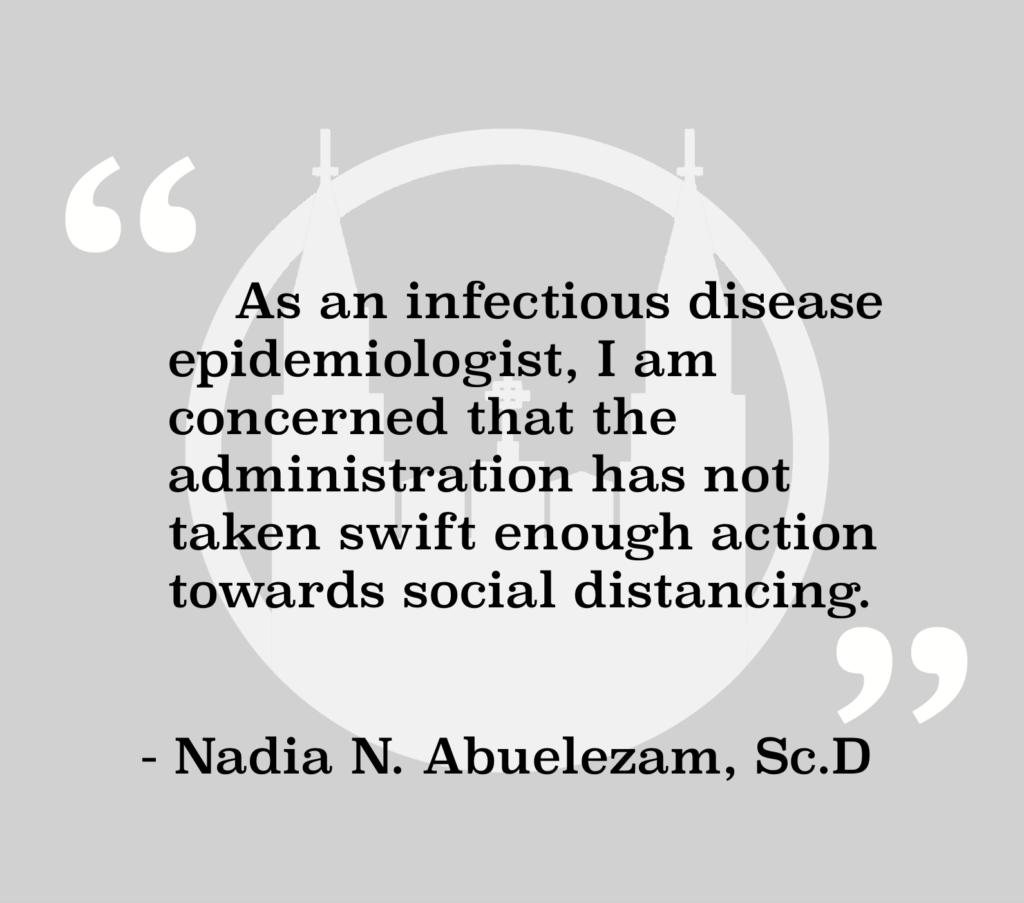As each Halloween passes, I realize how much older I am and how much more serious my responsibilities have become. Life is no longer as simple as trick or treat. And, being the season of horror, I realize, too, that my fears are no longer as simple as they once were. Looking back, it seems so trivial to lose sleep because of the monsters under my bed—the ghost stories have been exposed. But it is wrong to say I am never afraid.
The other day, as I walked past Lyons Hall I was reminded of fear. Gazing aimlessly at the sky, I noticed an inscription above the building’s main-glass doors. “Fear of the Lord is true wisdom and true learning.” I started thinking about this quote—ignorant as to who was being quoted and within what context—and I found myself hating what it represented. Why fear the Lord? I assumed that by (presumably) Christian standards, a deeply rooted fear of the Lord leads the believer to uphold his spirituality at all costs. This fear makes for a blameless believer because he will follow the rules.
Yet the one who fears his leader cannot question him. And it’s easy to say, “I question my faith so this doesn’t apply to me,” but what I am talking about is much more serious than a testament of faith. The problem is that those who fail to question what they are told fail to think for themselves.
A few weeks ago I was talking with a small group of students. We decided to play a game in which a series of statements are posed that you can either agree or disagree with. One of the statements was, “I would rather find my soulmate than have $ 10 million.” Most everyone said they strongly agreed—an expected answer when society teaches the cliche that money is “the root of all evil.” Wouldn’t the more moral option, however, be to take the money? To choose your soulmate is inherently selfish because it only secures your happiness. Whereas with $10 million I can send 40 students to Boston College and, though the money itself would not guarantee their happiness, they would have the opportunity to learn to be happy. Except we never disagree with this statement because we are so conditioned to refuse the money.
Likewise, the next statement said, “I would rather die than live forever,” to which everyone agreed. Did everyone so readily believe in an afterlife? On a biological level, death cannot be a viable option. I was shocked. Why were they so quick to sacrifice their reality—their inner consciousness—on an uncertainty? I’m not saying that heaven is false and that it is wrong to have faith, but it’s strange to me that everyone was so predisposed to agree.
Herein lies my greatest fear: a world in which people stop questioning everything around them—the institutions, the cultural norms, the social value systems. Why does every life have dignity? Why does everything happen for a reason? Why is capitalism the best form of government? And the problem does not lie in having faith. In many respects faith benefits the world in that it provides a sense of comfort and meaning against the unanswerable questions of mankind. The problem lies in having blind faith—the notion that we cannot personally justify our own beliefs outside of “he said or she said this so it must be true.” We are so frequently told what to do (both directly and indirectly) that we become complacent in the way we think. Feign ignorance or indifference because it is easy to be told what to do.
After all, can we be held accountable for simply following orders? But how can we expect to create a better world unless we individually deconstruct and then reconstruct the standards of our world. Why should Americans have a right to own firearms? Why is socialism deplorable? Why do we buy clothes we know are made in sweatshops? We tell ourselves “that’s just the way things are” and we let that defeatist mentality dictate our lives without even realizing it.
And it is more than difficult to ask questions—it’s terrifying. Because when we ask hard questions, we find answers we do not want to hear—answers that destroy even the foundation of who you are. Sure, we realize that there is no monster under the bed but that does not save us from climate change or war or disease. Yet we need these questions because it gives us something to at least search for. It’s not until we shatter the safety of what we are told and force ourselves to venture into the unknown that we can find answers that actually work.
So when you walk past Lyons, look at the inscription and remind yourself not to be afraid. The prospect of questioning everything you believe can be terrifying, but the consequence of not asking questions is even scarier.
Featured Image by Francisco Ruela / Heights Graphic



















